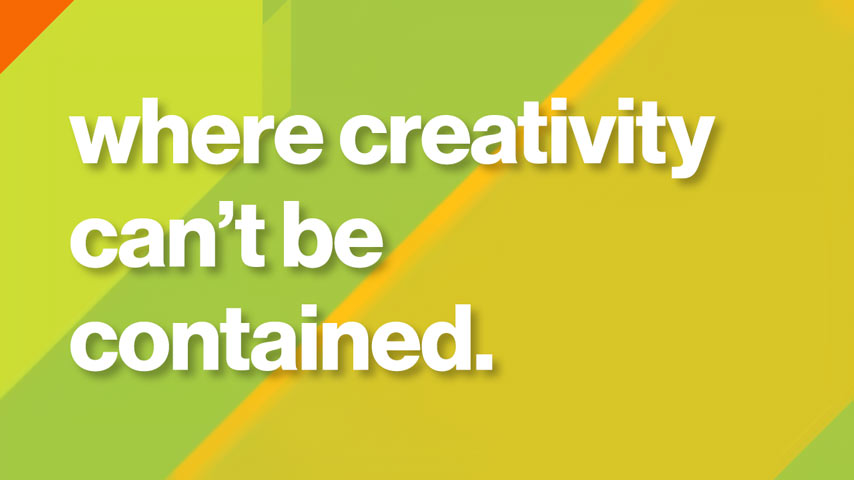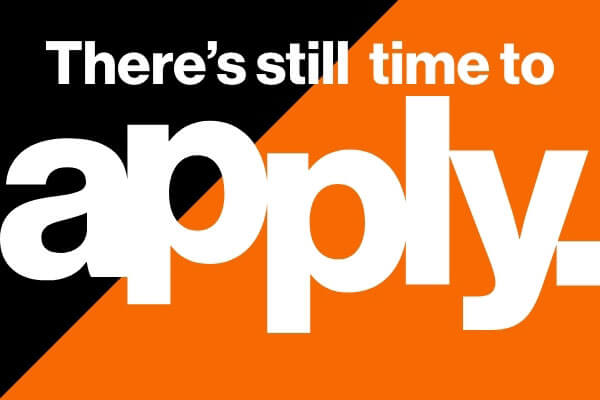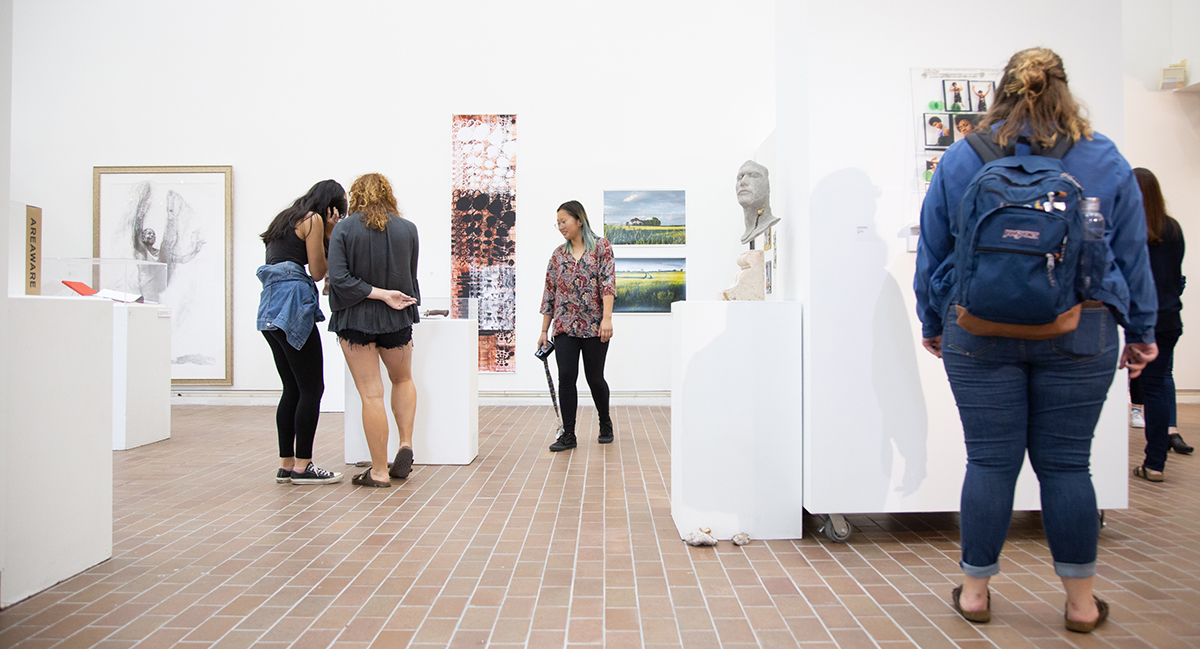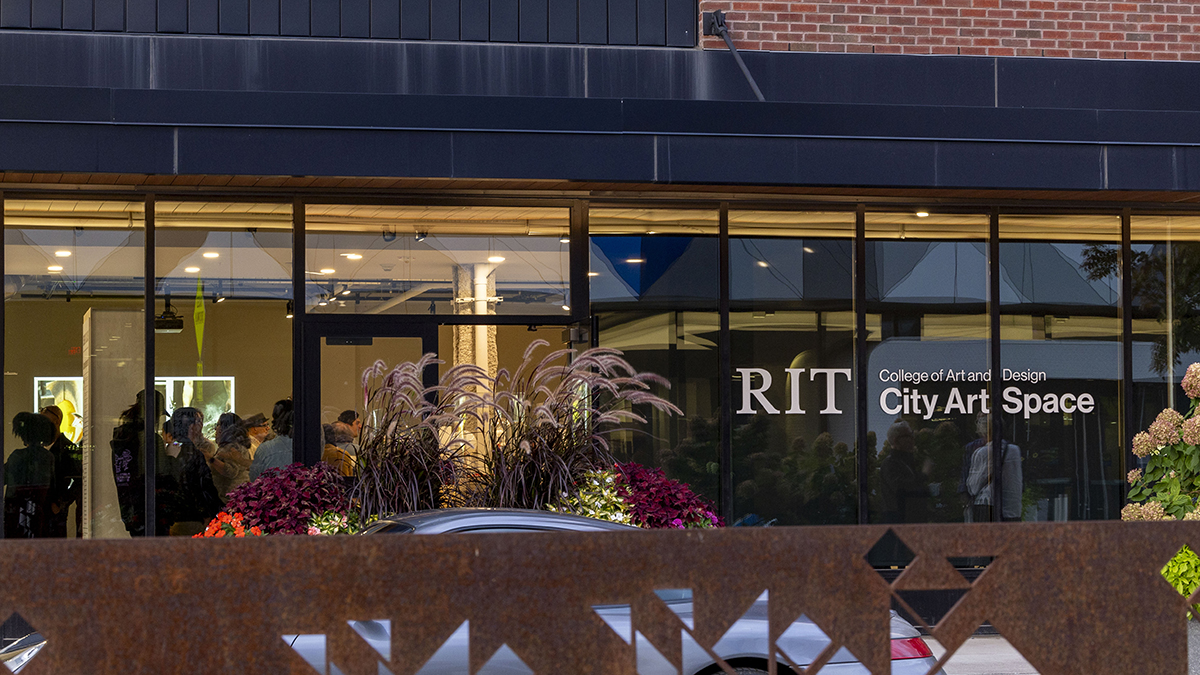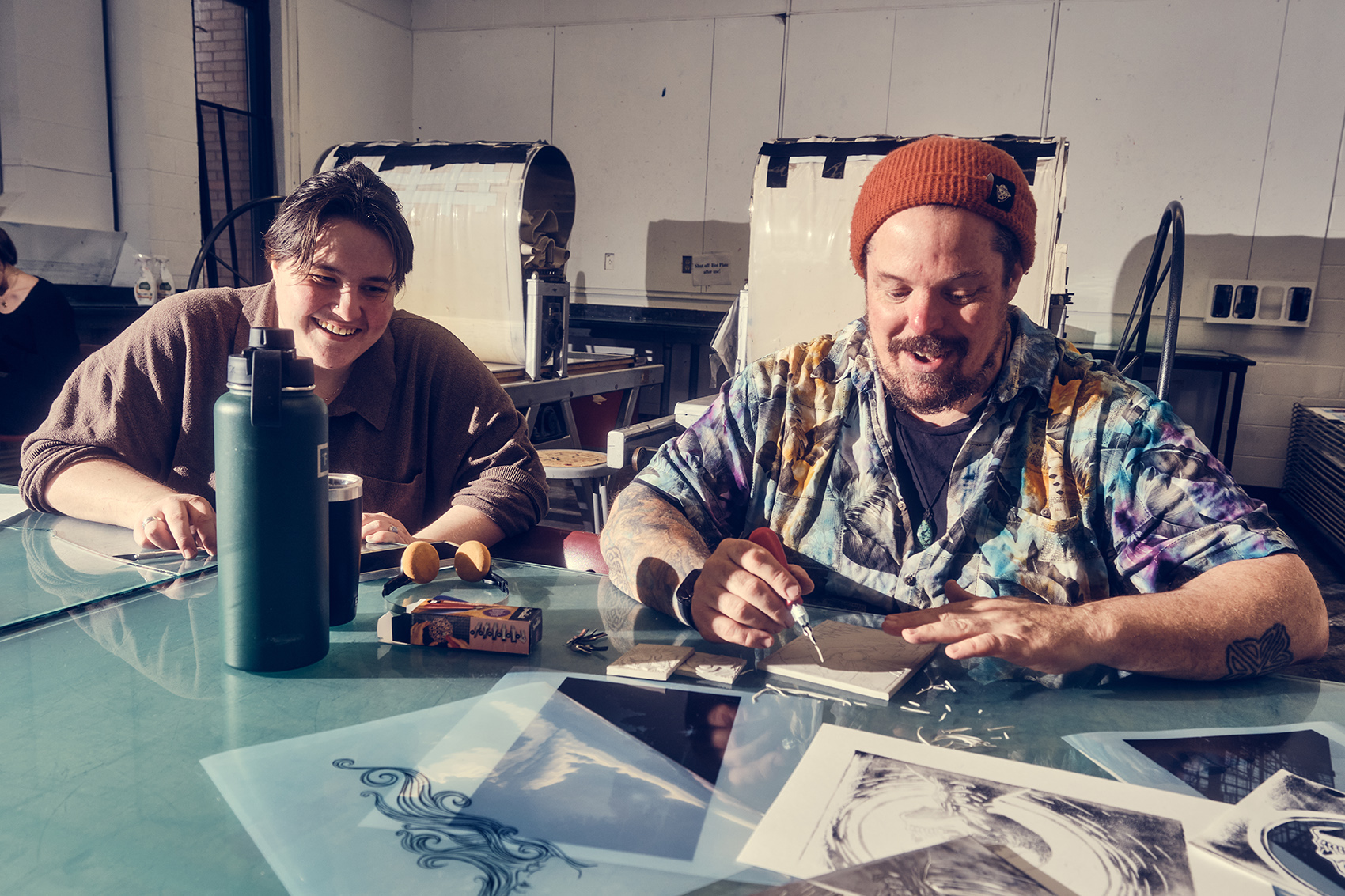Printmaking Option - Studio Arts BFA
Printmaking Option
Studio Arts BFA
- RIT /
- College of Art and Design /
- Academics /
- Printmaking Option - Studio Arts BFA
RIT's BFA in printmaking curriculum addresses a variety of media, tools, and both traditional and technological techniques related to printmaking concepts, as well as theory.
Overview for Printmaking Option - Studio Arts BFA
Why Study Printmaking at RIT
Gain Real-World Experience: Cooperative education and internship means hands-on, full-time paid work experience.
College Preparation Workshops: High school juniors and seniors can participate in the two-week School of Art's annual Pre-College Portfolio Preparation Workshop.
Exhibit your Work: During senior year, your final body of work will be featured in a gallery.
RIT's printmaking degree focuses on concepts and techniques. Organized to offer a flexible experience, this degree supports your printmaking problem-solving and skill-building. The curriculum addresses a wide variety of media, tools, and both traditional and technological techniques, as well as theoretical concepts to facilitate skill development and experimentation processes. This option is part of the studio arts BFA program.
-
Join us for Fall 2026
There's still time to apply. For some programs, applications will be reviewed on a rolling, space-available basis.
-
Join Us for Accepted Student Open House
Visit campus on March 28 or April 11 to meet faculty, tour campus, and ask your questions.
Careers and Experiential Learning
Industries
-
Performing and Fine Arts
-
Higher Education
Cooperative Education and Internships
What’s different about an RIT education? It’s the career experience you gain by completing cooperative education and internships with top companies in every single industry. You’ll earn more than a degree. You’ll gain real-world career experience that sets you apart.
Co-ops and internships take your knowledge and turn it into know-how. Your art and design co-ops will provide hands-on experience that enables you to apply your artistic capabilities in dynamic professional settings while you make valuable connections between classwork and real-world applications.
Students in the printmaking option are encouraged to complete a cooperative education or internship experience.
Creative Industry Days
Connect with Design Industry Leaders
RIT’s Office of Career Services and Cooperative Education hosts Creative Industry Days, which connects students majoring in art, design, film and animation, photography, and select computing majors with companies, organizations, creative agencies, design firms, and more. Creative Industry Days are a series of events that allow you to network with company representatives and interview directly for open co-op and full-time employment positions.
Featured Work and Profiles
-
Summer Drawing Course for High School Students
Denton Crawford Each summer, RIT’s School of Art invites high school students to campus for an intensive course that prepares them to apply to the art schools of their dreams. Pre-College Portfolio Prep is a two-week...
Read More about Summer Drawing Course for High School Students -
Exhibition Opportunities in Downtown Rochester
John Aasp, Todd Jokl RIT has maintained a creative presence in downtown Rochester with an urban art gallery in various locations since 1999. The latest location of RIT City Art Space in the Neighborhood of Play, steps...
Read More about Exhibition Opportunities in Downtown Rochester -
Silkscreen print selected for juried exhibition
Kas Gaviola ’27 (painting option - studio arts BFA) created a silkscreen print that was selected for the prestigious Rochester-Finger Lakes Exhibition at Memorial Art Gallery.
Read More about Silkscreen print selected for juried exhibition -
Student Merges Art and Engineering to Revolutionize Glucose Monitoring
Dylan Bennish ’24 BS, MS (electrical engineering) blends art with engineering to screen print textile antennas capable of tracking glucose levels with more cost-effective and less invasive methods.
Read More about Student Merges Art and Engineering to Revolutionize Glucose Monitoring -
Artists Print! Workshop
RIT’s Artists Print! event had the printmaking studio buzzing with activity. The weeklong residency program invited 12 renowned artists to campus for a lively week of creating and exploration. With...
Read More about Artists Print! Workshop -
Pre-College Portfolio Prep Workshop
RIT's annual Pre-College Portfolio Preparation Workshop offers students an engaging and rewarding experience. The course, taught by our School of Art's drawing and painting faculty, is a visual arts...
Read More about Pre-College Portfolio Prep Workshop
Admissions and Financial Aid
This option is part of the Studio Arts BFA. Please visit the degree program page for admission requirements.
Financial Aid and Scholarships
100% of all incoming first-year and transfer students receive aid.
RIT’s personalized and comprehensive financial aid program includes scholarships, grants, loans, and campus employment programs. When all these are put to work, your actual cost may be much lower than the published estimated cost of attendance.
Learn more about financial aid and scholarships
Related News
-
February 16, 2026
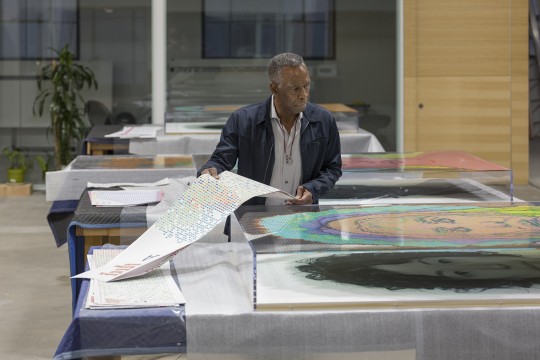
Exhibition, talk features influential artist Charles Gaines '67
Charles Gaines '67 MFA (art and design), a pivotal figure in the field of conceptual art, has an upcoming exhibition in RIT’s University Gallery that traces a loose arc of his career and illustrates his sustained interest in the lyrical potential of logical systems. He will also give a companion artist talk Thursday, March 26.
-
September 24, 2025

New School of Film and Animation director, faculty roles for 2025-26
Ricky Figueora taking over as the new director of RIT's School of Film and Animation headlines exciting promotions and additions to the College of Art and Design faculty.
-
December 4, 2024

Alumni couple's creative connection celebrated with joint exhibition
More than 50 years after meeting in RIT’s printmaking studio, Jean Stephens '73, '77 MST and Bill Stephens '74 MST are still thriving in marriage, teaching and making their art. Their joint exhibition in RIT's University Gallery represented a full-circle moment of their life together.




